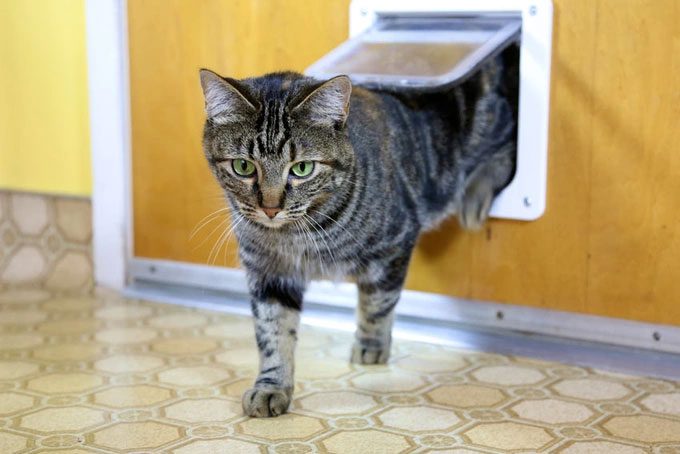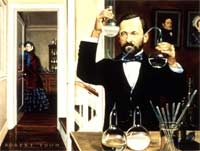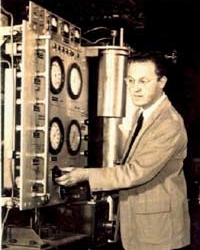As someone who is always curious about the world around him, Isaac Newton loved to use his brilliant mind to solve even the smallest problems.
Born as the son of an uneducated farmer, Newton ended his life as a wise scholar, a renowned master of astronomy, chemistry, mathematics, and physics.

The cat flap today is a product of Newton’s genius invention. (Photo: Getty).
His curiosity about the happenings around him led him to address issues ranging from small ones like cats urinating on carpets to grander questions about humanity’s ultimate purpose in the universe.
As a man who never married and had few friends, Newton held a special affection for dogs and cats. Some contemporary historians suggest that he was an animal lover and kept several pets throughout his life.
However, keeping pets while focusing on scientific research posed a significant challenge.
It is said that at the University of Cambridge, Newton’s experiments were frequently interrupted by his cats scratching at his office door. Newton was extremely frustrated at the time, but he did not want to move the cats to another area.
Ultimately, he asked a carpenter to cut two holes in the door, one large for the mother cat and one small. Interestingly, Newton did not realize that the kitten would also squeeze through the larger hole with its mother, rather than using the small one.
Nevertheless, the cat flap, with a similar design, remains popular to this day and is recognized as an intriguing invention of the English genius.
There is also a story that Newton’s cat consistently disrupted his optical experiments by opening the door and letting light in.
The English inventor decided to cut a hole in the door and cover it with a cloth. Later, he replaced the cloth with a small piece of wood, and the cat seemed very comfortable with this door.





















































